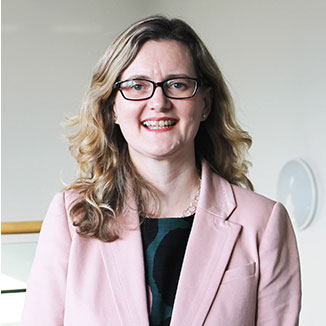24 June 2020
Learning from disruption – exploring what counts in higher education

Author
Ailsa Crum
Head of Quality and Enhancement, QAA Scotland
Even in the weeks before social distancing laws made it illegal, it was apparent that inviting 500 people to spend two days together in an enclosed conference venue wasn’t going to be a good idea. So, as the sector has become almost accustomed to doing, we shifted delivery of our International Enhancement Conference online. Our conference, 'Learning from disruption: exploring what counts in higher education', brought together nearly 400 delegates from around 20 countries to focus on the experiences arising from a period of disruption, asking how this might shape future higher education design, delivery and the wider student experience. Here are some of the conference highlights.
Learning from disruption - and avoiding ‘panic-gogy’
Among the benefits of moving the conference online, we gained the engagement of Professor Mary Stuart, Vice-Chancellor of the University of Lincoln, who would not otherwise have been able to join us in Glasgow. In our opening keynote, Mary emphasised that we not only need to learn from disruption, we must learn to live with it. She highlighted that the way we teach and what we teach both need to change.
The panel session which followed picked up that theme, focusing on the changing pedagogy and its likely impact on students and on the role of academic staff. Professor Tom Crick (Swansea University) and Professor Richard Watermeyer (University of Bristol) shared the outcomes of their substantial survey of staff views in the wake of the pandemic, engaging with Professor Clare Peddie (University of St Andrews) and Helyn Gould (University of Strathclyde) to explore what the future might hold for approaches to teaching, learning and assessment. This session emphasised the importance of students acquiring both academic and transferable skills - in many respects underlining Mary Stuart’s point that we are no longer in an ‘either/or’ world, we are citizens of the ‘and/and’ world.
With our second keynote speaker joining from Australia, we took the opportunity to try out the flipped classroom model by making Professor Sally Kift’s session available in advance. Sally, President of the Australian Learning and Teaching Fellows (ALTF), joined delegates live to discuss her thesis that we should keep calm in the face of disruption, ensuring we avoid ‘panic-gogy’ and seeking to create flexible educational ecosystems where sectors are seamless and students can move with ease between university and the workplace.
Student engagement - and normalising accessible learning
An invited panel of students discussed their experiences of student engagement in a crisis. They saw plenty of opportunity in the new modes of delivery. Students are tired of lectures, they told us. What students want are targeted sessions with
opportunities for engaging with each other and with staff. The current position of moving activity online has empowered students, opening new ways of providing their views and making it easier to participate in some established processes, such as
programme reviews. However, there was recognition that not all students could enjoy these benefits with digital poverty leaving some struggling to afford equipment, stable broadband or sometimes even quiet space in which to progress their studies.
‘Let’s normalise accessible learning’ was a memorable soundbite from one student whose entire undergraduate experience has been a blend of in-person and online activity.
Wellbeing and kindness
In this time of such rapid disruption, it felt right to close with a session focused on wellbeing and kindness. What happens when learning moves online? Sean Michael Morris, Director of the Digital Pedagogy Lab at the University of Colorado, emphasised that this is not a question technology can answer; only humans can provide the answer. It’s what takes place in that relationship between staff and students - teach through the screen is the advice. In a truly international panel, Sean Michael was joined by Dr Petrea Redmond from the University of Southern Queensland and Dr Heather Gray from Glasgow Caledonian University. The panel encouraged staff to model wellbeing, highlighting the importance of looking after the basics and remembering the impact staff wellbeing has on our students.
How an online conference stacks up - and get access to conference resources
A big gain of the online conference format was the opportunity to really hear from other delegates during the sessions - those who might be intimidated to grab a microphone and put their question to the panel across a crowded conference room, are less inhibited in the online environment. Now the live event has passed, the digital format allows us to offer recordings and resources from all the sessions. These are accompanied by materials curated for the event alongside highlights from our current and previous Enhancement Themes and Focus On activity. As one delegate wrote, ‘it was, in all sincerity, the best conference I have attended in 24 years working in HE’ with ‘mind-blowing resources’. The one thing we haven’t quite cracked from the original in-person format is the after dinner ceilidh. Perhaps next time.
If you’d like to see more Evidence for Enhancement, have a look at this short film.
And check out those ‘mind-blowing’ conference resources.
